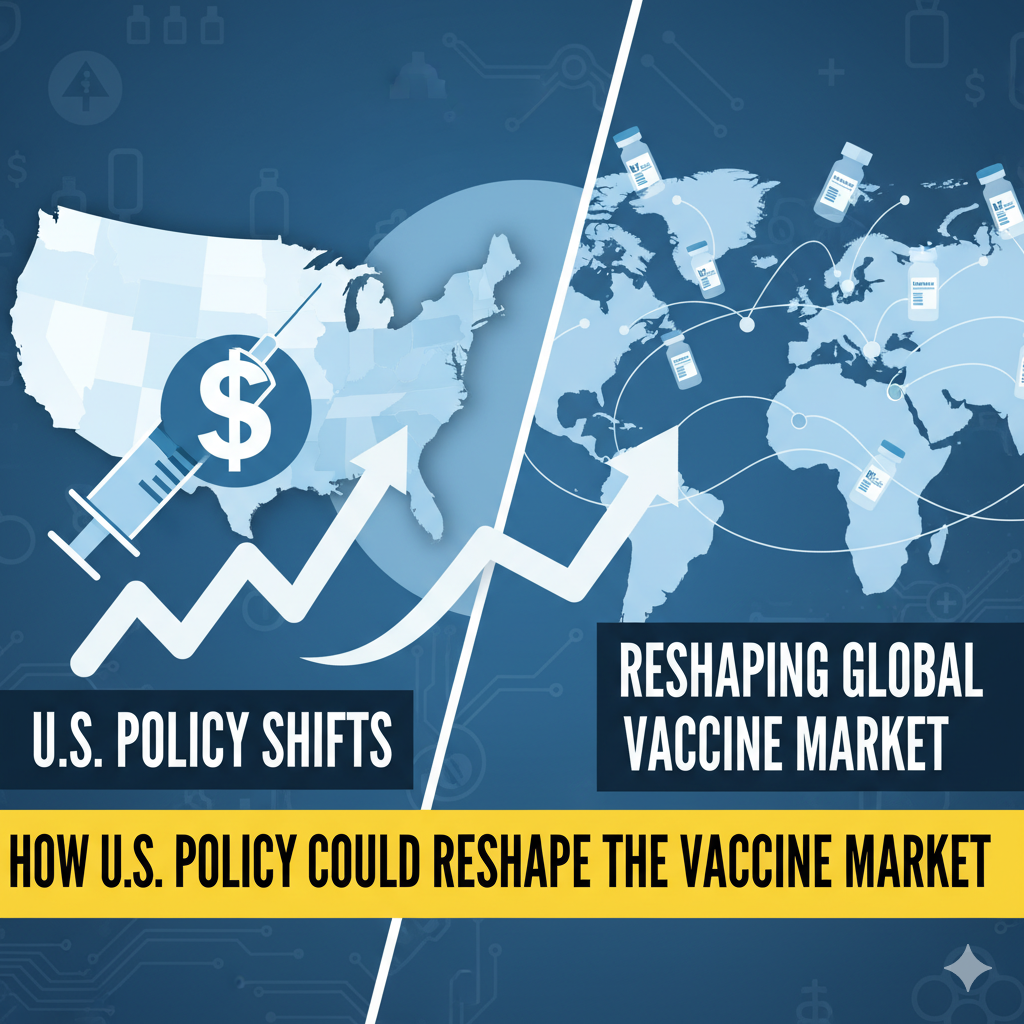Vaccines remain one of the most important tools in protecting public health. For decades, the United States has played an outsized role in the global vaccine market by funding research, setting immunization recommendations, and purchasing vaccines at levels far above other countries. According to Gavi, the Vaccine Alliance, the U.S. accounts for more than one-third of worldwide vaccine revenue, making American policy decisions critical for both public health and pharmaceutical stability.
But policy changes within the U.S. can quickly alter this market. Vaccine development requires long timelines, high safety standards, and significant financial risk. If government incentives, recommendations, or protections are weakened, companies may scale back their vaccine divisions—potentially creating shortages, slowing innovation, and putting future pandemic preparedness at risk.
Why the U.S. Vaccine Market Matters
- Global share: The U.S. purchases more vaccines than any other country, representing 35–40% of global revenue.
- Pricing power: American buyers pay up to 20 times more per dose than global health alliances such as Gavi.
- Policy impact: Federal recommendations from the CDC and ACIP create predictable demand for manufacturers.
Without this support, vaccine production can shrink. In the mid-20th century, more than two dozen companies produced vaccines in the U.S.; by the early 2000s, only a handful remained, causing repeated shortages.
How Policy Changes Affect Vaccines
- Regulation and Approval
- Vaccines must undergo strict FDA review before public use.
- Tighter rules or slowed approvals make vaccine development riskier and more expensive.
- Federal Recommendations
- The CDC’s Advisory Committee on Immunization Practices (ACIP) issues schedules that drive routine demand.
- Weakening or removing recommendations reduces confidence and uptake.
- Funding and Incentives
- Federal grants, advance-purchase agreements, and programs like VFC (Vaccines for Children) offset the costs of research and manufacturing.
- Pulling back this support discourages investment.
- Legal Protections
- The Vaccine Injury Compensation Program (VICP) provides liability coverage for manufacturers while ensuring patients are compensated for rare adverse events.
- Weakening these protections could expose companies to lawsuits, driving them out of the market.
Risks of Shrinking Vaccine Infrastructure
- Shortages: With fewer suppliers, disruptions at one facility can cut national supply in half, as seen with the flu vaccine in 2004.
- Reduced Innovation: Smaller biotech firms may exit the market, leaving fewer players to develop next-generation vaccines.
- Pandemic Preparedness: Programs like Operation Warp Speed showed how government partnership accelerates vaccine breakthroughs. Without similar support, future responses could be delayed.
The Bottom Line
Vaccines are different from most drugs. They are preventive, used only a few times in a lifetime, and priced to remain broadly accessible. That makes them less profitable, but they are essential to public health. The U.S. vaccine market thrives only when government policy creates stability through clear recommendations, funding, liability protections, and consistent demand.
If those pillars weaken, vaccine access could shrink not because of bans, but because manufacturers can no longer afford to stay in the market. The result could be fewer vaccines, higher costs, and a slower response to future health threats.
✅ Key Takeaway: The survival of the vaccine market depends less on consumer demand and more on strong, science-based U.S. policies that ensure vaccines remain safe, available, and financially viable to produce.

